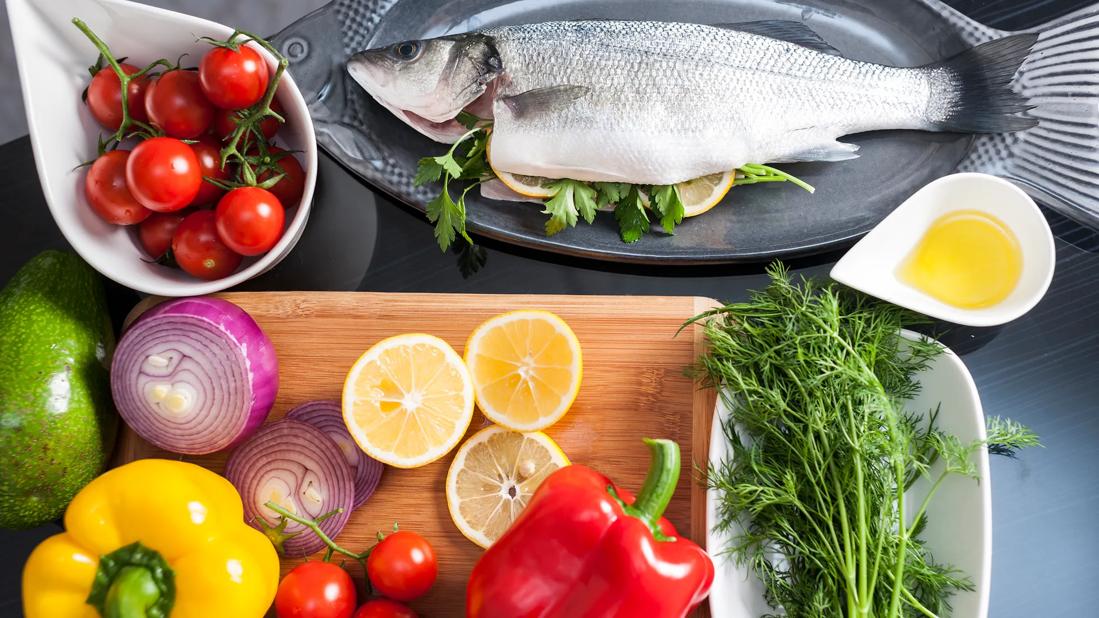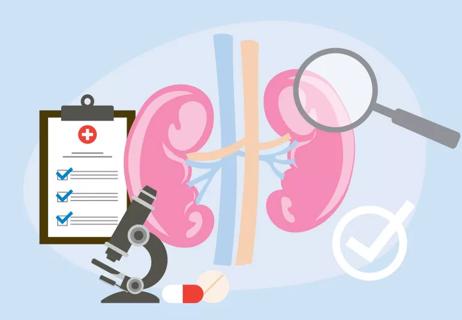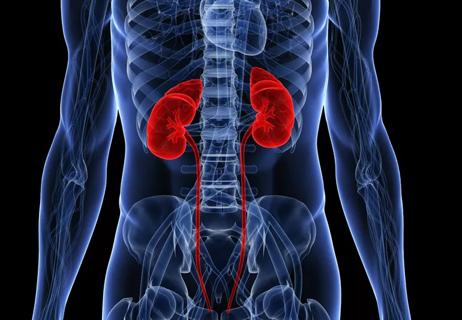When you have kidney disease, low-sodium and nutrient-rich foods are the dietary ‘golden rules’

Dietary advice can get really complicated when you’re living with the kidney diseases IgA nephropathy (IgAN) or complement 3 glomerulopathy (C3G). That’s because kidney disease often occurs alongside other conditions, like heart disease and diabetes, that come with their own set of dietary guidelines.
Advertisement
Cleveland Clinic is a non-profit academic medical center. Advertising on our site helps support our mission. We do not endorse non-Cleveland Clinic products or services. Policy
How do you follow diet recommendations for kidney health, heart health and diabetes management all at once … while also managing symptoms like weight loss and a lack of appetite?
Nephrologist Corey Cavanaugh, DO, helps simplify.
What “healthy eating” looks like with kidney disease can change over time, but there are two golden rules that are evergreen:
As time goes on, Dr. Cavanaugh explains that your diet may need to become more restrictive. If you’re living with kidney failure or on dialysis, for example, you may benefit from the renal diet. But for many people, observing the golden rules works just fine.
“It’s easy to get caught up in really complicated diets and cutting out certain nutrients for one reason or another,” he notes. “But if you can just focus on limiting your sodium intake and eating nutritious foods, that’s going to be good for your kidney function and your overall health.”
Of course, if you have diabetes — a common IgAN and C3G comorbidity — you’ll also need to ensure that you’re eating to keep your sugar at an appropriate level. Other health conditions require following specific eating patterns as well. So, make sure your provider knows all of the conditions that you’re balancing. They’ll be sure to tailor their dietary guidance to reflect your needs.
Advertisement
Kidney health and blood pressure are intricately connected — and your sodium levels impact both.
Your kidneys play an important role in regulating your body’s salt and water levels. But when you have IgAN, C3G or other diseases that affect your kidneys, they can’t filter out extra salt as well. That leads to sodium buildup that causes swelling and raises your blood pressure.
High blood pressure (hypertension) puts you at risk for a range of complications, including:
Some people with kidney disease develop salt sensitivity, meaning they get higher blood pressure from eating salt than other people do.
And it’s a vicious cycle.
“Kidney disease puts you at risk for high blood pressure, and at the same time, having high blood pressure damages your kidneys,” Dr. Cavanaugh says. “Hypertension puts pressure on your heart and all the blood vessels in your body. Because your kidneys are full of blood vessels, hypertension can make kidney disease worse and may lead to kidney failure. It’s all very connected.”
If you’re living with IgA nephropathy and C3G, Dr. Cavanaugh, again, recommends that you keep your sodium intake low. It will help reduce your blood pressure and even decrease swelling, a common symptom of kidney disease.
The American Heart Association recommends an ideal limit of no more than 1,500 milligrams of sodium per day.
You can lower your sodium intake by reading nutrition labels carefully at the grocery store and using less (or no) salt when you’re cooking. And you can start small.
“The typical American diet is very high in sodium, so it’s hard to cut out lots of salt at once. That’s a huge change for many people,” Dr. Cavanaugh recognizes. “It’s reasonable and very attainable, though, to cut your sodium intake by a gram a day. Any reduction in salt is going to be helpful.”
Gradually reducing your sodium intake will make a difference — without making you feel like you’re making a big sacrifice to keep your kidneys healthy.
Speaking of taste, keep in mind that food doesn’t have to taste salty to be high in sodium. The U.S. Centers for Disease Control and Prevention (CDC) says these foods are some of the top sources of sodium:
The good news? Salt isn’t the only way to make food taste great. Learning about alternatives isn’t just a good choice for your kidneys, but it’s also a one-way ticket to a culinary adventure!
Advertisement
In general, a healthy diet emphasizes eating whole foods over processed or packaged foods. But it’s extra important when you’re living with IgAN or C3G. Eating meals that are rich in nutrients gives your body the energy it needs and reduces your risk of complications like high blood pressure.
Dr. Cavanaugh explains that whole foods are foods in their most natural, nutrient-packed state. Also called “real foods,” these are the basics. Eating them — instead of pre-packaged and processed options — will give your whole body a boost.
Whole foods are those that have just one ingredient. Some of the best whole foods for your kidney health include red bell peppers, berries and fish. They’re rich in vitamins, inflammation-fighting antioxidants and other essential nutrients. They’re also low in potassium and phosphorus.
Other whole foods to add to your diet include:
Diet is an important part of managing IgAN and C3G, but Dr. Cavanaugh understands that strictly following a highly restrictive diet isn’t doable for most people. You’re human, after all. And there isn’t yet a cure for IgAN or C3G.
“But don’t let perfection be the enemy of progress,” he advises. “It’s more about being consistent about making healthy eating choices. Making good choices more often than not can help slow the progression of kidney disease. But few things are better than a good meal, so enjoy it, but find a balance.”
Advertisement
Advertisement

Sign up for our Health Essentials emails for expert guidance on nutrition, fitness, sleep, skin care and more.
Learn more about our editorial process.
Advertisement

Tracking your weight, swelling, blood pressure and more may help you — and your provider — figure out what’s driving secondary FSGS

Regular visits with your nephrologist, at-home testing and symptom tracking ensure you’re doing all you can to preserve kidney function

Testing can both reveal the likelihood that you’ll pass on complement 3 glomerulopathy and identify possible treatments

It’s a way to further glomerular disease research and expand your treatment options

Expect some new prescriptions, as well as recommendations to avoid other medications

You may not notice any symptoms of kidney disease until later stages

The best predictors of kidney cancer’s return are cancer type, stage and grade after surgery

The biggest concern is that they could rupture

Even small moments of time outdoors can help reduce stress, boost mood and restore a sense of calm

A correct prescription helps your eyes see clearly — but as natural changes occur, you may need stronger or different eyeglasses

Both are medical emergencies, but they are very distinct events with different causes